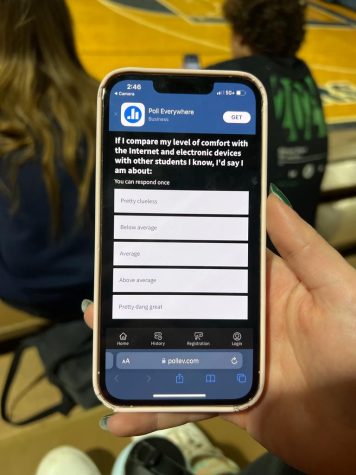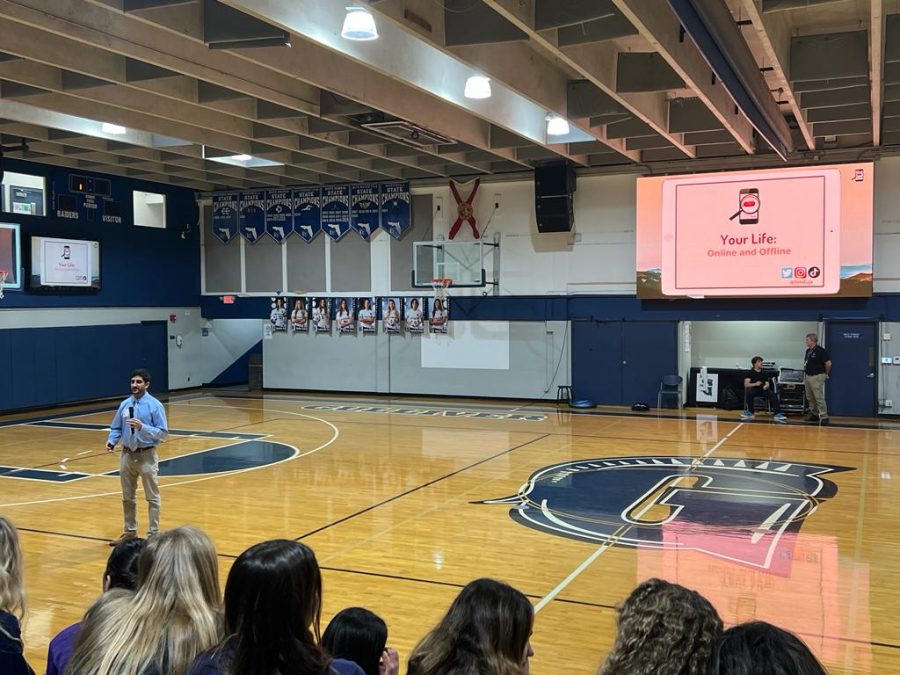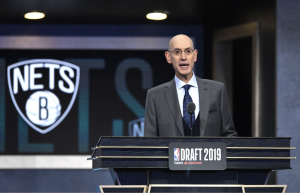Cyberbullying Assembly Met with Mixed Opinions from the Student Body
Hinduja talks to the student body about online safety and presence. While this was a main component of his presentation, Hinduja also placed emphasis on cyber bullying as well, a topic which many students already knew about. Even then, junior Rania Ishoof thinks that assemblies like these are “always a good reminder. Maybe some things we think are taught at home or maybe regular for us may not be normalized for other students,” she said.
January 9, 2023
The student body gathered over the course of two days to listen to guest speaker Sameer Hinduja speak about cyberbullying and online presence, last week. Hinduja – a published author, Florida Atlantic University professor, and co-director of the Cyberbullying Research Center – covered a wide range of topics from cyberbullying to how to use social media to one’s advantage.
There is no doubt that cyberbullying is a prevalent issue. A 2015 study published in the National Library of Medicine, found that, in a group of over 28,000 participants, half of those participants (their average age, 15) reported that they had been cyberbullied. Hinduja’s presentation offered an interactive component where students submitted responses to a live survey regarding their social media experience.
Throughout his presentation, Hinduja offered insight into how one should take action against cyberbullying. He offered that bystanders should speak up and lead an awareness initiative. He also stressed the importance of how college admissions officers view an applicant’s social media, urging students to make a positive online impression. This resonated with sophomore Claire O’Neil.
“I do like the fact that he wasn’t just saying don’t have social media altogether, and that he was trying to say how it can be beneficial. There were a lot of things he said that I thought were good and I agreed with,” said O’Neil.
Students had mixed reactions to the presentation, overall. For some, the information offered a reminder of online safety.
“I think assemblies are important because they spread awareness and they definitely make people think twice about what they’re going to say online,” said junior Elinor Alfi.
Others felt that Hinduja provided information they already knew.
“We’ve heard [about social media safety] so many times from our own parents and just having another assembly on top of that makes it difficult for us to listen because it’s just a topic we’re so familiar with,” said sophomore Isabella Giraldez.
Even though cyberbullying is a common topic among teenagers, students like junior Rania Ishoof felt that the assembly provided an opportunity for the school to deal with prevalent subjects that affect the student body as well as offer tips and reminders.

“I think assemblies like this are somewhat important because they reinforce teachings that sometimes we’re prone to forget,” Ishoof said.
O’Neil felt the message of the assembly should be introduced to younger audiences.
“I think it’s good to try to educate kids about cyberbullying. I definitely think that it’s something that should be done more so at the start of middle school because I think that’s when most kids get their phones. It should be addressed before it has a chance to begin,” O’Neil said.
O’Neil offered that cyberbullying prevention assemblies should begin at the beginning of middle school, when she believes most people get smartphones. She mentioned that cyberbullying should be addressed before it has a chance to begin – not once the issue has already affected the majority of high school students.
Students like sophomore Julian Terry simply don’t care about assemblies like these. “[Students] don’t really see the point of people like [Hinduja] coming and just sharing their input,” said Terry.












